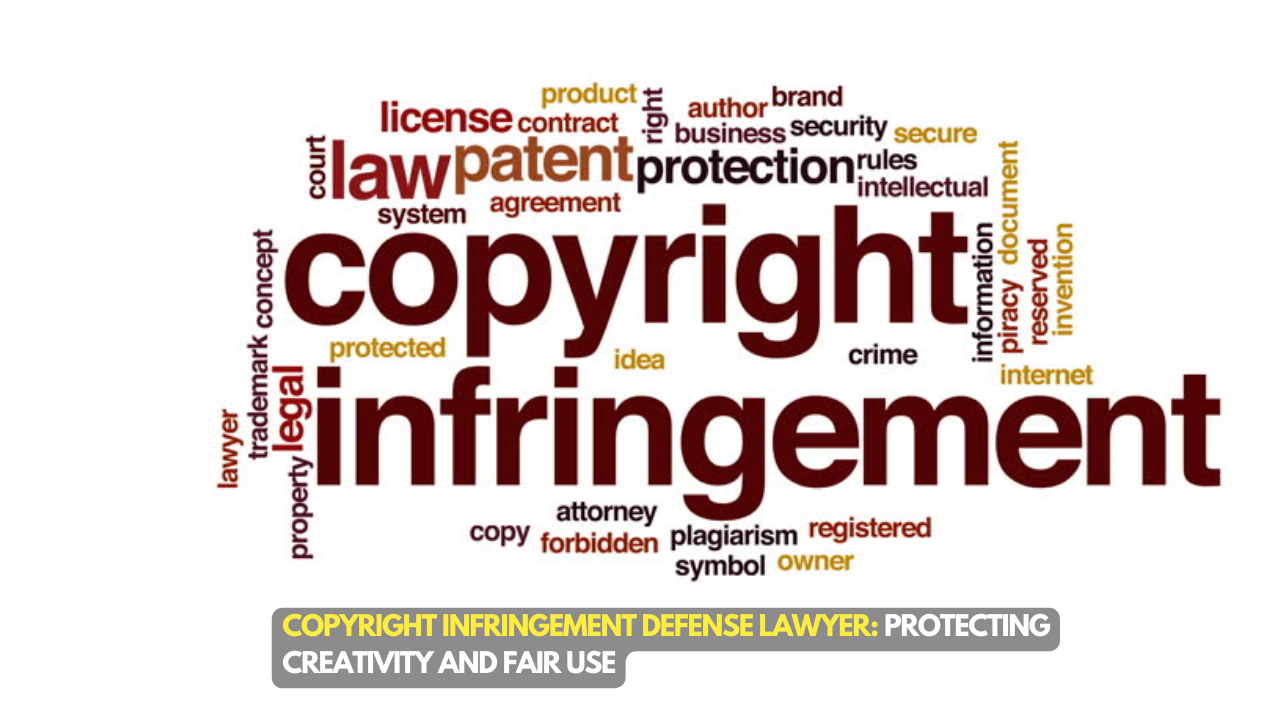In the digital age, where information flows freely and creativity is often shared through various mediums, the realm of copyright law has taken on new dimensions. With the ease of copying and sharing content, the potential for copyright infringement has grown significantly. In this landscape, copyright infringement defense lawyers play a crucial role in safeguarding creativity and ensuring that the rights of both content creators and users are protected. This article delves into the responsibilities, challenges, and importance of copyright infringement defense lawyers in upholding the principles of fair use and protecting the rights of all parties involved.
Understanding Copyright Infringement
Copyright infringement occurs when someone reproduces, distributes, performs, or displays copyrighted material without the permission of the copyright owner. It is essential to understand that copyright protection is not absolute; it is subject to certain limitations and exceptions, one of the most significant being the doctrine of fair use.
The Role of a Copyright Infringement Defense Lawyer
Copyright infringement defense lawyers are legal professionals specializing in protecting individuals or entities accused of copyright infringement. Their role encompasses various aspects, including:
- Legal Expertise: These lawyers have a deep understanding of copyright law, its nuances, and how it applies to different situations. They are well-versed in the principles of fair use, transformative use, and other defenses that can be employed in copyright infringement cases.
- Case Evaluation: Copyright infringement defense lawyers evaluate the case to determine whether there has been an actual infringement and whether any defenses, such as fair use, can be applied. They examine factors like the nature of the copyrighted work, the purpose of the alleged infringing use, the amount used, and the effect on the market value of the original work.
- Crafting Defense Strategies: Based on their analysis, these lawyers develop tailored defense strategies. This could involve arguing that the use falls under fair use, that the work is in the public domain, or that there is no substantial similarity between the works in question.
- Negotiation and Settlement: In many cases, copyright infringement defense lawyers work to negotiate settlements outside of court. This could involve reaching an agreement with the copyright holder to resolve the matter without litigation.
- Litigation: If a settlement cannot be reached, copyright infringement defense lawyers represent their clients in court. They present arguments and evidence to counter the allegations of copyright infringement and uphold their clients’ rights.
- Educating Clients: These lawyers also play an educational role, informing clients about copyright law, their rights, and potential risks. By raising awareness, they help clients avoid unintentional infringement.
The Doctrine of Fair Use
At the heart of copyright infringement defense lies the doctrine of fair use. Fair use allows limited use of copyrighted material without permission from the copyright owner for purposes such as criticism, commentary, news reporting, teaching, scholarship, and research. Fair use is a crucial defense in copyright infringement cases and is determined by analyzing four factors:
- Purpose and Character of the Use: Is the use transformative? Is it for commercial or nonprofit purposes? Transformative uses, such as parody or commentary, are more likely to be considered fair use.
- Nature of the Copyrighted Work: Is the original work factual or creative? The fair use defense is stronger when using factual works compared to creative works.
- Amount and Substantiality Used: How much of the copyrighted work was used? Using a small portion of a work is more likely to be considered fair use, but using the “heart” of the work may tip the balance toward infringement.
- Effect on the Market Value: Does the use negatively impact the market for the original work? If the use doesn’t substitute for the original work and doesn’t harm its market, fair use is more likely.
Challenges Faced by Copyright Infringement Defense Lawyers
- Subjectivity: Determining whether a use qualifies as fair use involves subjective interpretation of the four factors. This can lead to differing opinions and complex legal debates.
- Rapid Technological Changes: With the internet and digital platforms constantly evolving, new methods of content creation and sharing emerge. Copyright infringement defense lawyers must stay up-to-date with these technological changes to effectively represent their clients.
- Burden of Proof: In copyright cases, the burden of proof is on the defendant to establish that their use qualifies as fair use or falls under another applicable defense. This can be challenging, especially considering the subjectivity of fair use analysis.
- Evolving Precedents: Copyright law and fair use principles are shaped by legal precedents. These precedents can evolve over time, impacting how fair use is interpreted and applied.
Case Study: Protecting Fair Use in the Digital Age
Imagine a situation where a YouTube content creator is accused of copyright infringement for using clips from a popular movie in their video essay. The content creator argues that their use falls under fair use because they are providing commentary and analysis of the movie’s themes. A copyright infringement defense lawyer would need to evaluate the case based on fair use principles, considering factors like the transformative nature of the use, the amount of copyrighted material used, and the effect on the market for the movie. They would craft a defense strategy that highlights the educational and transformative purpose of the content creator’s video while addressing potential counterarguments from the copyright holder.
Conclusion
In the digital age, the role of copyright infringement defense lawyers is crucial in ensuring that the delicate balance between protecting creators’ rights and allowing for creative expression is maintained. By navigating the complexities of copyright law and fair use, these lawyers uphold the principles of justice while safeguarding the rights of both content creators and users. As technology continues to reshape how we create and share content, the expertise and advocacy of copyright infringement defense lawyers remain essential in shaping the legal landscape surrounding creativity and intellectual property.

